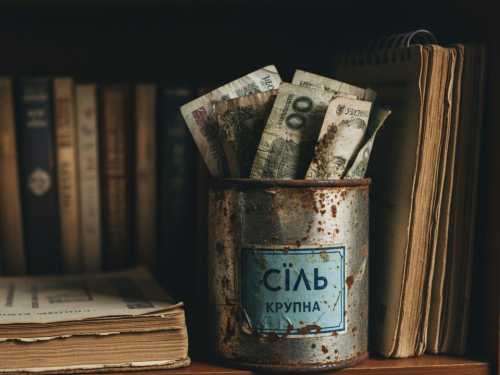
I remember the old days very well and fondly, but without nostalgia. Moreover, over the years I realize that many habits from the past distort our thinking and poison our lives.
Here are some habits that seem financially detrimental to me:
Just in case
This is a direct legacy of the Soviet past, when everything was in short supply, when boots, perfume, or carpets were not bought, but “taken away.” Hence the desire not to throw anything away.
The habit of leaving unnecessary, broken, unused things behind, saying “what if I need them?” can clutter up the space of even a large apartment. Balconies are especially affected by this hoarding – you've probably seen ones that look like a warehouse of forgotten things. Old sleds, broken stools, non-working irons and vacuum cleaners…
It is believed that prosperity will not come to a cluttered house. You can believe in the ancient philosophy of Feng Shui, or you can simply agree with psychologists: a cluttered house creates a mess in your thoughts, preventing you from focusing on truly important goals. But new opportunities come more willingly to a free space, where there is a lot of light and air.
Stockpiling
I have a sister, 11 years older than me. When she was 25, I was 14, respectively. She then accidentally “got” a white, either Hungarian or Czech sheepskin coat. Small, just right for me. I really liked this sheepskin coat, but my sister decided to leave it for her daughter, who was only a year old at the time. As a backup. For her growth.
Need I say that when my daughter grew up, she turned out to be bigger than me, and the sheepskin coat went out of fashion a long time ago? No one wore it anyway.
This case is very telling for me. It is important to distinguish between smart savings and thoughtless hoarding. Buying a few packs of washing powder or pasta on sale is financial literacy. But buying clothes or appliances “for the future” is freezing money in things that will lose their relevance. It is better to save this money, and when you really need the thing, you will buy a modern, necessary model.
Until better times
Another habit, the roots of which lie in the era of scarcity. I recall “Quiet Don”, where the Cossacks kept their best dresses in chests for special occasions, which happened once or twice in their entire lives. And in my childhood there were special dishes “for guests”, there were “weekend shoes”, and dishes that were prepared only for the New Year.
The shortage has long been gone, but the habit of postponing the best “until better times” is still common among many. This is perceived as saving, but in reality it is a dangerous syndrome of postponed life. Don't wait for a special occasion to pour tea into a beautiful cup or put on your favorite dress. The best time to live and enjoy what you have is today.
What will people think?
We recall the times of party and trade union meetings, where everyone who deviated from the general line was “sandblasted.” Where public opinion was more important than personal opinion.
Of course, you need to be considerate of your surroundings. For example, not making noise after 11:00 PM is respect for your neighbors. But it's a completely different thing to deny yourself something because of fear of being judged. Not opening your own business because “they'll say you're a speculator.” Not changing jobs to more lucrative ones because “it's not prestigious.” Being afraid to wear bright clothes because “you're not your age.”
Constantly looking at people hinders development, including financial development. All successful entrepreneurs or creative people once went against the flow and were not afraid of judgment. If the fear of “what people will think” had stopped them, their lives would have been completely different.
Keep money under the pillow
Distrust in the banking system, undermined by Soviet monetary reforms, forced people to keep their savings at home: under the mattress, in the closet, in cereal jars.
From the point of view of financial literacy, this is one of the biggest mistakes. Money that just lies around is constantly depreciating due to inflation. Today, for 1,000 hryvnias, you can buy much less than a year ago. Money should work: at least be on deposit in a bank to cover inflation, or it should be invested wisely. Keeping cash at home is not about reliability, but about a guaranteed loss of its value over time.
Package with packages
The famous bag of bags has become a real meme. The roots of this tradition are clear: plastic bags were a rarity in the USSR, they were even washed and dried.
Reuse is a manifestation of thrift, and there is nothing wrong with that. The problem here is not the “bag with bags” itself, but the fact that this habit comes from scarcity thinking. Today, the other extreme is harmful – the thoughtless consumption of disposable bags. Instead of accumulating them, it is much smarter and more profitable to switch to an eco-bag or shopper. This is not only caring about the environment, but also conscious consumption and saving several hundred hryvnias a year. So, let's modernize the old habit: we do not accumulate plastic, but consciously refuse it.






